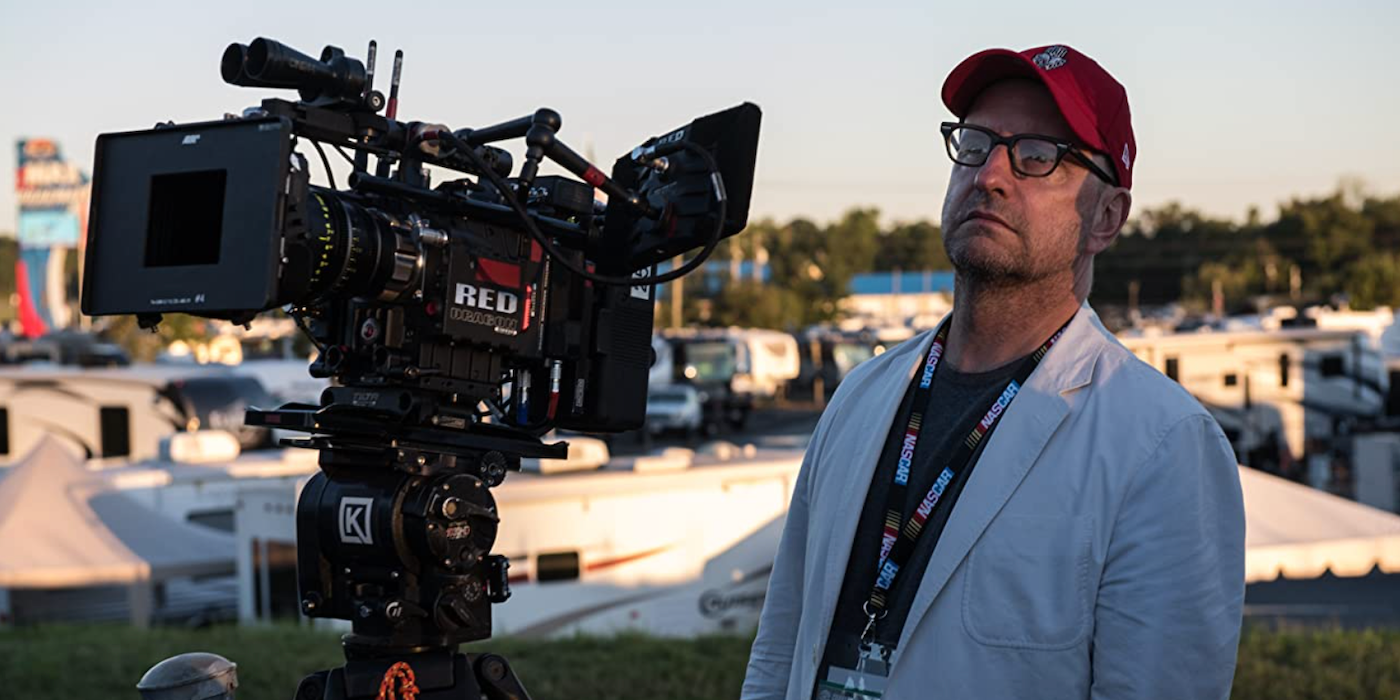In recent years, Steven Soderbergh has established a footprint in the streaming world. Having directed or executive produced content which has gone to Netflix, Quibi, and soon HBO Max (with his new movie Let Them All Talk), Soderbergh has shown a willingness to embrace the growing world of streaming in a noticeable way. With this in mind, it seems natural that Soderbergh might be asked to weigh in on the recent announcement from HBO Max regarding the decision to release Warner Bros.' 2021 slate — including big tentpoles Godzilla vs. Kong, Dune, and The Matrix 4 — on the streaming platform the same day as their theatrical release. Does Soderbergh, a creative with experience working with streamers, have any strong opinions about sending potentially huge blockbusters to HBO Max at the risk of impacting attendance in movie theaters?
Turns out, Soderbergh definitely has some thoughts — and they're not at all what you'd expect. The Let Them All Talk director had a chance to discuss the Warner Bros.-HBO Max decision and whether it signals the end of movie theaters as we know it while promoting his upcoming movie. The topic came up early on in Soderbergh's recent interview with The Daily Beast. Soderbergh initially shared the following on whether the Warner Bros.-HBO Max announcement would signal an end to movie theaters as we know them.
"Not at all," Soderbergh replied. "[The streaming push is] just a reaction to an economic reality that I think everybody is going to have to acknowledge pretty soon, which is that even with a vaccine, the theatrical movie business won’t be robust enough in 2021 to justify the amount of P&A you need to spend to put a movie into wide release. There’s no scenario in which a theater that is 50 percent full, or at least can’t be made 100 percent full, is a viable paradigm to put out a movie in. But that will change. We will reach a point where anybody who wants to go to a movie will feel safe going to a movie."
Soderbergh continued with praise for the sobering movie to temporarily favor releasing big movies to streaming, explaining the financial implications of the decision: "I think somebody sat down and did a very clear-eyed analysis of what COVID is going to do in the next year, even with a potential vaccine, and said, I don’t see this as being workable in 2021. Because let’s be clear: there is no bonanza in the entertainment industry that is the equivalent of a movie that grosses a billion dollars or more theatrically. That is the holy grail. So the theatrical business is not going away. There are too many companies that have invested too much money in the prospect of putting out a movie that blows up in theaters—there’s nothing like it. It’s all going to come back. But I think Warners is saying: not as soon as you think."
When The Daily Beast asked Soderbergh whether a potentially game-changing move like the one Warner Bros. has made regarding the pushing of its 2021 slate onto HBO Max could make an irreversible impact on theatrical exhibition, the director took a candid and optimistic approach to the issue.
"I think it’ll finally push the studios and NATO (National Association of Theater Owners) to have some practical and realistic conversations about windowing," Soderbergh told The Daily Beast, "because there needs to be more fluidity. There’s not going to be one template that fits every movie. Every movie is different. You need the flexibility. If you’re in a bad situation, and you’ve got a movie that you opened wide, and you know Friday at 3 p.m. it’s not working, you need to be able to get it on a platform as soon as possible. You spent so much money trying to make this work, and if it didn’t, you should be able to do whatever you want to do. Theaters are going to be pushing you out anyway because you bombed."
As The Daily Beast and Soderbergh transitioned out of this topic of conversation to focus on Let Them All Talk, Soderbergh was asked whether he sees theaters instead becoming a place where they solely cater to showing big-budget, tentpole-level movies (the implication being that it might be a good way for brick-and-mortars to recover in the near future). Soderbergh answered, in part, "One variable that hasn’t really been scaled up is that, now that we live in an all-digital world, all of these big theater chains have the ability to turn themselves into repertory cinemas in which they screen films from any period of the last 120 years for audiences who’ve never seen them in a theater. There are all these movies from the ‘70s, ‘80s, ‘90s, and early aughts that nobody has seen in a theater," and continued further on with, "The other thing is, every time we think that it’s just going to be tentpoles and blockbusters—and art-house movies on the other end—something shows up in the middle and works. Downton Abbey made a lot of money. That movie was coming out when we were in discussions with Warners about Let Them All Talk, and I pointed to that as an example of what I consider to be our audience. That’s our demographic; that’s the audience I want. And look, they showed up for that."
Let Them All Talk arrives on HBO Max on December 10. Watch the Let Them All Talk trailer here and get more HBO Max updates here.



